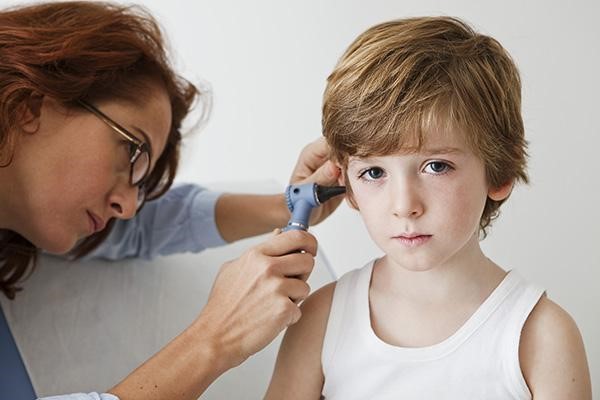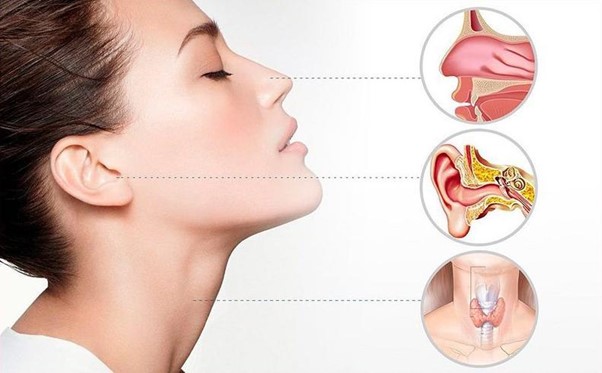Pediatric ENT Care Common Childhood Conditions and Treatments

Pediatric ENT Care in Singapore
Pediatric ear, nose, and throat (ENT) care focuses on the specialized medical treatment of infants, children, and teenagers who suffer from ear, nose, throat, and related head and neck disorders.
Pediatric ENT specialists use a variety of treatments to address these issues including antibiotics, surgery, dietary changes, immunotherapy, hearing aids, and other medical devices.
Pediatric ENT care is provided by an otolaryngologist, a physician who has completed additional training in the diagnosis and management of disorders related to the ear, nose, and throat.
Common Pediatric ENT Conditions and Treatments
Ear Infection
Ear infections are common in babies and young children and are usually caused by viruses or bacteria. Symptoms include ear pain, fever, and difficulty sleeping. A pediatrician may prescribe antibiotics, ear tubes, or pain relief medication to alleviate the symptoms.
Swimmer's Ear
Swimmer’s ear is caused by bacteria growing in the ear canal, usually from swimming or bathing. Symptoms include pain, swelling, and redness in the ear. Treatment involves antibiotic eardrops or steroids to reduce inflammation.
Eustachian Tube Dysfunction
Eustachian tube dysfunction is a condition in which the conduit to the middle ear from behind your nose becomes inhibited. It can cause undesired effects such as pain, muffled hearing, and even pressure within the ears, all of these should not be taken lightly and handled with care by seeking medical attention immediately if needed.
The treatment includes medications for reducing inflammation or surgery in severe cases.
Tinnitus
Tinnitus is ringing in the ears without any external sound source. Symptoms include a buzzing or humming sound in the ear. Treatment involves finding the underlying cause of tinnitus and addressing it through medication, therapy, or surgery.
Hearing Loss
Hearing loss in children can be caused by many factors, including genetics, injury, infections, or medicines. Treatment can vary from hearing aids to cochlear implants, depending on the extent of hearing loss.
Otosclerosis
Otosclerosis is the growth of abnormal bone tissue that prevents the eardrum from vibrating correctly. Symptoms include hearing loss, tinnitus, and dizziness. Treatment includes hearing aids or surgery to replace the stapes bone.

Acoustic Neuroma
Acoustic neuroma is a rare noncancerous tumor that affects the nerve connecting the ear to the brain. Symptoms include hearing loss, dizziness, and ringing in the ear. Treatment involves surgery or radiation therapy to remove the tumor and preserve hearing.
Meniere's Disease
Meniere’s disease is a disorder of the inner ear that causes vertigo, hearing loss, and tinnitus. Treatments include medication, therapy, or surgery, depending on the severity of the symptoms.
Vestibular Neuritis
Vestibular neuritis is caused by inflammation of the inner ear and can cause vertigo and dizziness. Treatment includes medication to relieve symptoms.
Cholesteatoma
Cholesteatoma is a growth of cells behind the eardrum that can cause hearing loss and infection. Treatment includes surgery to remove the cholesteatoma and improve hearing.
Nose and sinus
Nose and sinus conditions are common in children and can be caused by allergies, infection, or structural problems.
Allergies can cause congestion, sneezing, and itchy eyes while infections may cause fever, fatigue, and a green or yellow discharge from the nose.
Treatment for nose and sinus issues will depend on the underlying cause but may include medications such as antihistamines, decongestants, or antibiotics. Structural problems such as a deviated septum may require surgery.
Throat and larynx conditions
Throat and larynx conditions in children can be caused by infection, allergies, or structural abnormalities. Common symptoms include sore throat, hoarseness, fever, and difficulty swallowing.
Treatment for these conditions may include antibiotics, anti-inflammatory medications, or surgery to address any structural problems.

Signs Your Child May Need ENT Treatment
Snoring and sleep apnea
If your child snores loudly or stops breathing during sleep, it may be due to an obstruction in their airway. Lack of oxygen to the brain can have serious consequences, so don’t ignore this warning sign. If your child need a sleep apnea surgery, an ENT doctor will be able to advise you on the best course of action.
Pain or pressure in their ears
If your child complains of pain, pressure, or a feeling of fullness in their ears, it’s time to talk to an ENT specialist. This could be due to something as simple as wax buildup or more serious such as a middle ear infection or even a hole in the eardrum. An ENT doctor can diagnose and prescribe treatment.
Swallowing difficulty
If your child has difficulty swallowing, it could be due to an issue within the throat or esophagus. It is important to get this checked out by an ENT specialist as soon as possible for proper diagnosis and treatment.
Frequent Nosebleeds
If your child experiences frequent nosebleeds, it is important to have this checked out by an ENT specialist as soon as possible. An ENT doctor can diagnose the causes of the nosebleeds and provide appropriate treatments. They may also recommend preventative measures to reduce the frequency of nosebleeds.
Hearing Loss
If your child is experiencing hearing loss, it could be due to something as simple as wax buildup or more serious such as a middle ear infection or even a hole in the eardrum. An ENT doctor can diagnose and prescribe treatment, which may include antibiotics, surgery, or hearing aids.
Tonsil and Adenoid Issues
If your child is having difficulty breathing through their nose, snoring excessively, or has frequent sore throats, it could be due to enlarged tonsils and adenoids. An ENT doctor can assess the issue and recommend a course of treatment that may include
Chronic cough
If your child has been coughing for several weeks or months, it may be due to a condition such as acid reflux, allergies, or asthma. An ENT specialist can help determine the cause and provide appropriate treatment.

Swollen tonsils and adenoids
Tonsils and adenoids are important parts of the immune system, but if they become enlarged, they can cause breathing difficulties and other issues. An ENT specialist can help determine if surgery is necessary to remove them.
Sinus infections
Chronic sinus infections can lead to headaches, facial pain, and difficulty breathing. An ENT specialist can help diagnose the underlying cause and recommend appropriate sinus treatment, which may include surgery.
Speech delays
If your child is having difficulty with speech development, it may be due to a hearing issue. An ENT specialist can help determine the cause and recommend the appropriate treatment.
Chronic sore throats
If your child is experiencing chronic sore throats, it may be due to a tonsil or adenoid issue. An ENT specialist can help determine the cause and recommend the appropriate treatment.
Voice changes
If your child’s voice has changed or has become hoarse for an extended period, it may be due to a vocal cord issue. An ENT specialist can help determine the cause and recommend the appropriate treatment.
Conclusion
Pediatric ENT care is an important part of managing childhood ear, nose, and throat disorders. It is vital to seek medical attention if your child is having persistent issues in any of these areas.
With the help of a pediatric ENT specialist, you can ensure that your child receives the appropriate care and treatment for any condition they may be facing.
Pediatric ENT Care Common Childhood Conditions and Treatments Read More »








